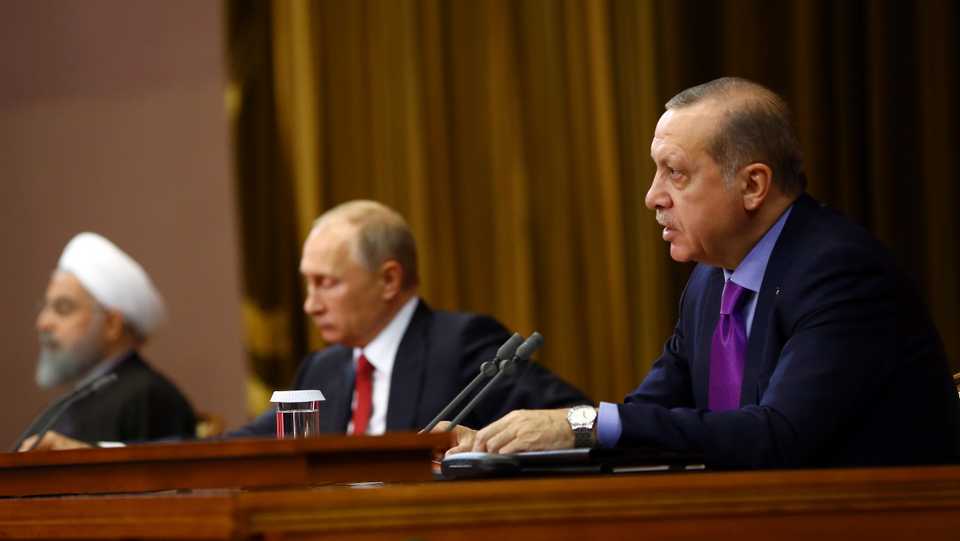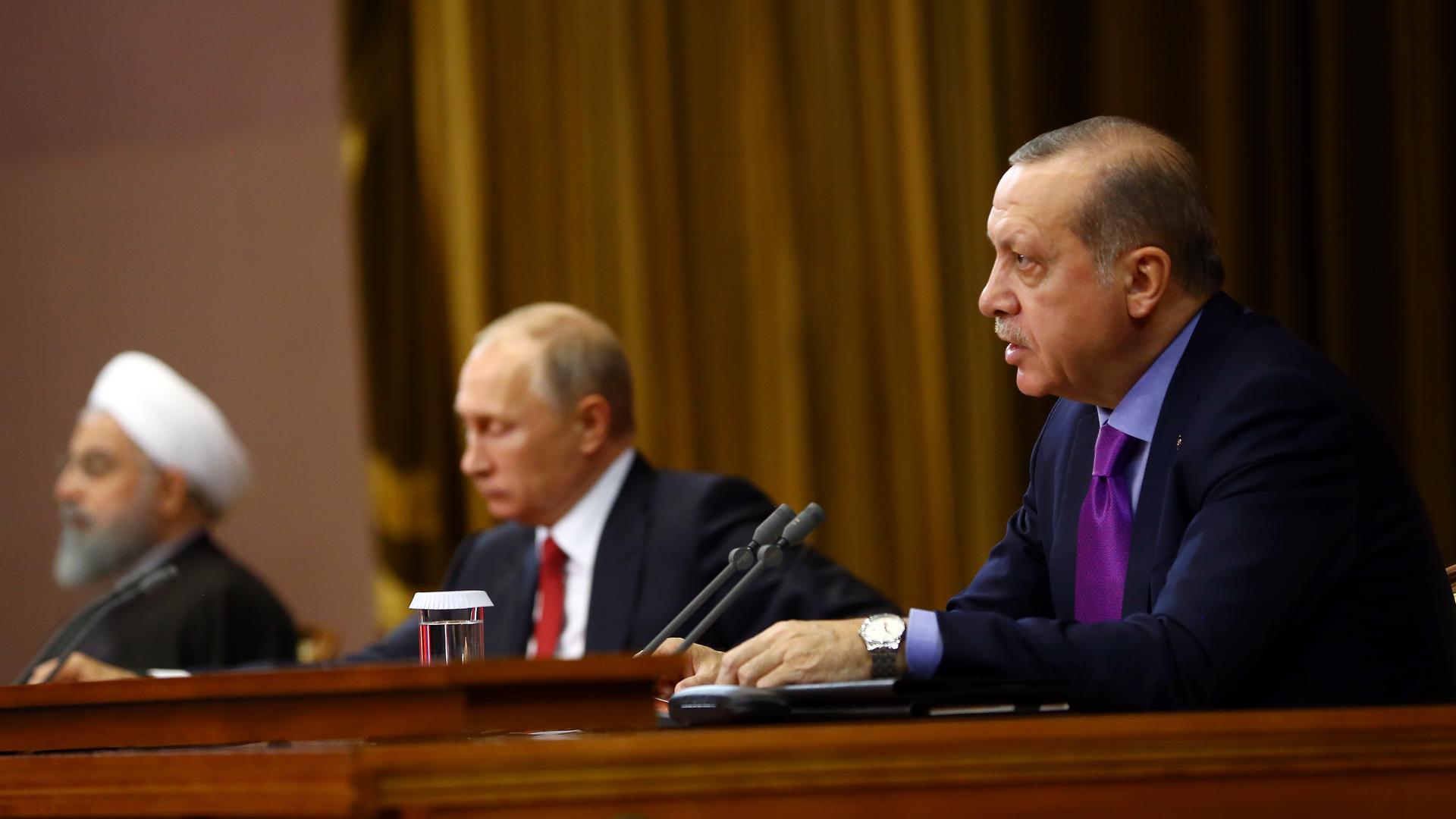
Turkish and Russian presidents on Monday discussed Turkey’s ongoing operation in northwest Syria and the establishment of new observation points in Idlib.
Speaking over the phone, Recep Tayyip Erdogan and his Russian counterpart Vladimir Putin agreed to continue cooperation and coordination in the fight against terrorism.
The two leaders discussed the latest developments in Afrin and the process of establishing new observation points in the de-escalation zone in Idlib.
Erdogan also spoke to Iranian President Hassan Rouhani about developments in Syria.
Turkey on January 20 launched Operation Olive Branch to remove YPG/PKK and Daesh terrorists from Afrin, northwestern Syria, along Turkey’s border.
Sinan Ulgen, chairman of the Istanbul-based think tank, the Center for Economics and Foreign Policy Studies, explains how the YPG and the Syrian regime have maintained a working relationship.
According to the Turkish General Staff, the operation aims to establish security and stability along Turkey’s borders and the region as well as protect Syrians from the oppression and cruelty of YPG/PKK and Daesh terrorists.
The phone call between the two leaders came after Turkey’s foreign minister warned against any intervention by Syrian pro-regime forces to support the YPG in northern Syria, saying it would not prevent Ankara from pressing on with its month-old offensive.
Mevlut Cavusoglu was reacting to a report from Syrian state news agency SANA saying pro-regime units were expected in the Afrin region to counter the Turkish operation against the YPG.
Turkey views the YPG as a terrorist offshoot of the outlawed PKK, designated a terrorist organisation by Ankara, the United States and the European Union.
“If the regime is entering [Afrin] to oust the PKK, YPG, there is no problem. But if they are entering to protect the YPG, then no one can stop us and Turkish soldiers,” Cavusoglu said during a visit to Jordan.
“This is true for Afrin, Manbij and east of the Euphrates River,” Cavusoglu added at a joint news conference in Amman with his Jordanian counterpart Ayman Safadi.
Later in the day, YPG spokesman Nouri Mahmoud denied agreeing to a deal with Damascus for the Syrian regime forces to enter the Afrin region to help against the Turkish operation.
Observation posts in Idlib
The foreign ministers of Russia, Iran and Turkey will meet in Kazakhstan in two weeks to prepare the ground for an Istanbul summit on Syria. The talks there will include the ongoing operation as well new observation posts in Syria de-escalation zones.
“In two weeks in Astana, the three guarantor countries will meet at the foreign ministers level in order to reduce the level of tension in Syria and pave the way for holding a [leaders’] summit in Istanbul,” Iranian Foreign Minister Javad Zarif said.
Shortly after Zarif’s comments, Turkish Deputy Prime Minister and government spokesperson Bekir Bozdağ announced after a cabinet meeting that the trilateral foreign ministers’ summit will take place on March 14.
A new observation post is to be established 70 kilometres from the Turkey-Syria border.
Assad regime forces and Iran-backed groups are around 10 kilometres from the deployment point.
On October 12, 2017, the Turkish army started to cross into the region to establish observation posts to monitor the cease-fire regime in the Idlib de-escalation zone.
Under the Astana agreement, Turkey is set to gradually establish 12 observation posts, from Idlib’s north to south.
Idlib, located in northwestern Syria on the Turkish border, has faced intense attacks by the Assad regime since the civil war broke out in 2011.
Since March 2015, Idlib is no longer under the control of the Assad regime and has been overrun by military opposition groups and anti-regime armed organisations.










Discussion about this post